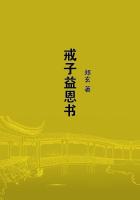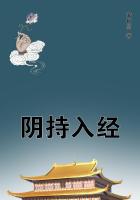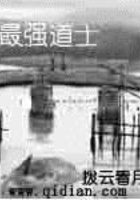CONSTITUTED VALUE OR SYNTHETIC VALUE
"V alue (marketable value) is the corner-stone of the economic structure." "Constituted" value is the corner-stone of the system of economic contradictions.
What then is this "constituted value' which is all M. Proudhon has discovered in political economy?
Once utility is admitted, labor is the source of all value. The measure of labor is time. The relative value of products is determined by the labor time required for their production. Price is the monetary expression of the relative value of a product. Finally, the the constituted value of a product is purely and simply the value which is constituted by the labor time incorporated in it.
Just as Adam Smith discovered the division of labor, so he, M.
Proudhon, claims to have discovered "constituted value". This is not exactly "something unheard of", but then it must be admitted that there is nothing unheard of in ny discovery of economic science. M. Proudhon, who appreciates to the full the importance of his own invention, seeks nevertheless to tone down the merit therefore "in order to reassure the reader to as his claims to originality, and to win over minds whose timidity renders them little favorable to new ideas". But in apportioning the contribution made by each of his predecessors to the understanding of value, he is forced to confess openly that the largest portion, the lion's share, of the merit falls to himself.
"The synthetic idea of value had been vaguely perceived by Adam Smith....
But with Adam Smith the idea of value was entirely intuitive. Now, society does not change its habits merely on the strength of intuitions: its decisions are made only on the authority of facts. The antinomy had to be stated more palpably and more clearly: J.B. Say was its chief interpreter."[I 66]
Here, in a nutshell, is the history of the discovery of synthetic value:
Adam Smith -- vague intuition; J. B. Say -- antinomy; M. Proudhon -- constituting and "constituted" truth. And let there be no mistake about it: all the other economists, from Say to Proudhon, have merely been trudging along in the rut of antimony.
"It is incredible that for the last 40 years so many men of sense should have fumed and fretted at such a simple idea. But no, values are compared without there being any point of comparison between them and with no unit of measurements; this, rather than embrace the revolutionary theory of equality, is what the economists of the 19th century are resolved to uphold against all comers. What will posterity say about it?"(Vol.I, p.68)
Posterity, so abruptly invoked, will begin by getting muddled over the chronology. It is bound to ask itself: are not Ricardo and his school economists of the 19th century? Ricardo's system, putting as a principle that "the relative value of commodities corresponds exclusively to their production", dates from 1817. Ricardo is the head of a whole school dominant in England since the Restoration. [The period in question begins after the termination of the Napoleonic wars and restoration of the Bourbon dynasty in France in 1815.] The Ricardian doctrine summarizes severely, remorselessly, the whole of the English bourgeoisie. "What will posterity say about it?" It will not say that M. Proudhon did not know Ricardo, for he talks about him, he talks at length about him, he keeps coming back to him, and concludes by calling his system "trash". If ever posterity does interfere, it will say perhaps that M. Proudhon, afraid of offending his readers' Anglophobia, preferred to make himself the responsible editor of Ricardo's ideas. In any case, it will think it very naive that M. Proudhon should give as a "revolutionary theory of the future" what Ricardo expounded scientifically as the theory of present-day society, of bourgeois society, and that he should thus take for the solution of the antinomy between utility and exchange value what Ricardo and his school presented long before him as the scientific formula of one single side of this antinomy, that of exchange value. But let us leave posterity alone once and for all, and confront M. Proudhon with his predecessor Ricardo. Here are some extracts from this author which summarize his doctrine on value:
"Utility then in not the measure of exchangeable value, although it is absolutely essential to it."(Vol.I, p.3, Principles de l'economie politique, etc. , translated from the English by F.S. Constancio, Paris 1835)"Possessing utility, commodities derive their exchangeable value from two sources: from their scarcity, and from the quantity of labor required to obtain theM. There are some commodities, the value of which is determined by their scarcity alone. No labor can increase the quantity of such goods, and therefore their value cannot be lowered by an increased supply. Some rare statues and pictures, scarce books... are all of this description.
Their value... varies with the varying wealth and inclinations of those who are desirous to possess them."(Vol.I, pp.4 and 5, l. c.)
"These commodities, however, form a very small part of the mass of commodities daily exchanged in the market. By far the greatest part of these goods which are the objects of desire, are procured by labor; and they may be multiplied, not in one country alone, but in many, almost without any assignable limit, if we are disposed to bestow the labor necessary to obtain them."(Vol.I, pp.5, l. c.)
"In speaking then of commodities, of their exchangeable value, and of the laws which regulate their relative prices, we mean always such commodities only as can be increased in quantity by the exertion of human industry, and on the production of which competition operates without restraint."(Vol.I, pp.5)















